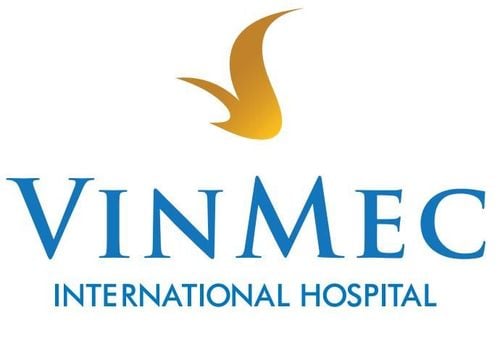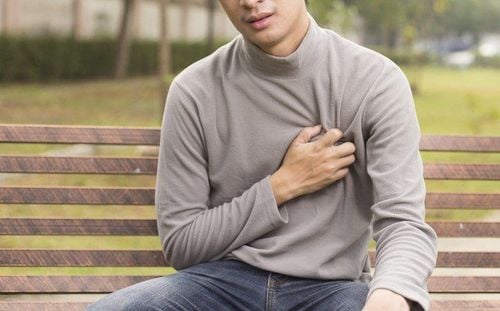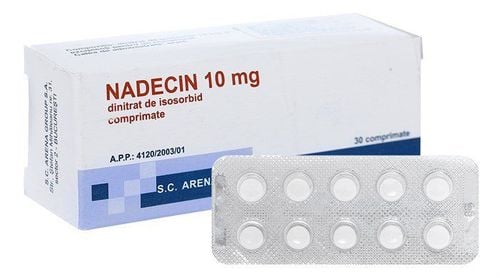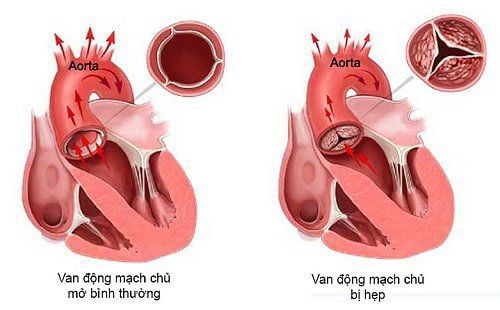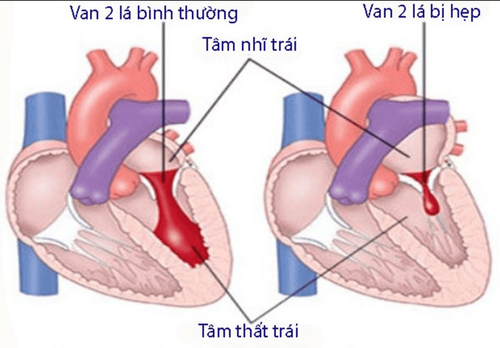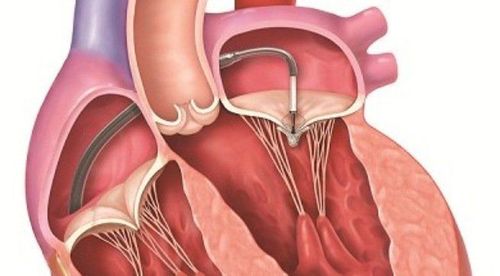This is an automatically translated article.
The article is professionally consulted by Master, Doctor Cao Thanh Tam - Cardiologist - Cardiovascular Center - Vinmec Central Park International General Hospital. Master - Doctor Cao Thanh Tam has many years of experience in the diagnosis and treatment of cardiovascular diseasesIn the elderly, health has declined much, all systems in the body are weakened, so when treating heart disease, it is necessary to be extremely cautious. Percutaneous aortic valve replacement (TAVI) is an advanced technique in the world and has a high success rate.
1. What is the treatment for heart disease in the elderly?
The circulatory system as well as other systems in the elderly body decline in function; Cardiovascular diseases, blood pressure, ... not only due to age, spontaneity, but also due to the process of living with many unreasonable habits, making the treatment of heart disease in the elderly become more and more difficult. should be complicated.1.1 In medical treatment
Using drugs must avoid incompatibilities between drugs.The proportion of elderly people suffering from cardiovascular diseases, diabetes, blood pressure, benign prostatic hypertrophy,... plus chronic degenerative diseases such as osteoarthritis, chronic liver disease, liver disease, etc. Chronic kidney disease... The use of multiple drugs at the same time to treat the above diseases is not only required to stabilize those chronic diseases, but also to be very careful to avoid drug interactions, otherwise it will be extremely dangerous. dangerous to health. For the elderly, having many diseases at the same time also creates a pathological spiral - one disease worsens can lead to another disease progression, so, without appropriate care and treatment, it will not be possible. stay healthy for a long time.
1.2 For surgical treatment
Medical treatment is complicated, if the elderly have heart disease, especially chronic heart disease leading to heart failure that requires surgical treatment, it is much more complicated.If surgical surgery is required, the most optimal solution should be selected, according to the following criteria:
Time of surgery: The elderly are subjects with lower tolerance than usual. Therefore, if the surgery is open, prolonged, under general anesthesia and blood loss, it is difficult to endure. Antibiotics to prevent infection: Modern surgical methods, the more sterile the environment, the smaller the incision, the less antibiotic prophylaxis is required. Recovery time: As soon as possible. Therefore, the necessary condition to effectively treat heart disease in the elderly is having a suitable solution.
2. Common heart diseases
2.1. Heart valve disease
Normally, there are 4 valves in the heart: the mitral valve, the tricuspid valve, the aortic valve, and the pulmonary valve. The heart valves help direct the flow of blood in and out of the heart.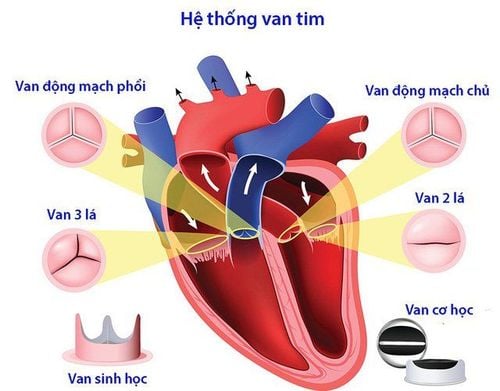
Mitral regurgitation Tricuspid valve stenosis Heart valve stenosis Aortic stenosis Aortic valve regurgitation There are many causes of valvular disease heart such as:
Congenital Cardiomyopathy: Changes the structure of the heart and causes regurgitation. Myocardial Infarction: Injury to the ligaments and muscle pillars causes stretching or rupture of the ligaments or pillars, causing a regurgitation of the heart valve. Age: As we age, the valve becomes degenerated, easily torn, prone to calcium plaque at the valve (cardiac valve calcification), which causes the valve to thicken and harden, restricting blood flow through the valve. Some other diseases can also cause heart valve disease such as coronary artery disease, high blood pressure, aortic aneurysm...
2.2. Cardiomyopathy
The most common cardiomyopathies are acute myocardial infarction and chronic myocardial ischemia. The disease is closely related to the blood and oxygen supply to the heart muscle.2.3. Cardiovascular disease
Common coronary artery disease, dissecting aortic aneurysm.2.4. Heart failure
Heart failure is a medical condition in which the heart is weakened and cannot function properly to pump blood to the body.Heart failure is often the final development of most cardiovascular diseases, especially in the elderly group with chronic cardiovascular disease, or not being treated well, or having bad lifestyle habits (such as smoking and smoking). , alcohol, ...), people with many chronic diseases at the same time such as diabetes, kidney failure,...
Can be classified into 2 main groups of causes of heart failure:
Cardiac causes: Diseases of stenosis and regurgitation, cardiomyopathy, coronary heart disease... Non-cardiac causes: Hypertension, kidney failure, COPD, asthma, hyperthyroidism...
3. Heart disease treatment at Vinmec Central Park International General Hospital
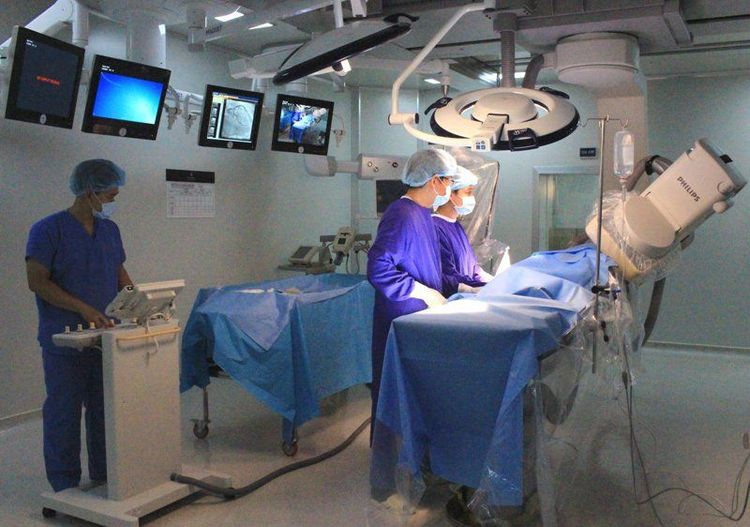
Percutaneous aortic valve replacement (TAVI)
This is the optimal solution for people with tight aortic valve stenosis. Percutaneous aortic valve replacement (TAVI) is an advanced technique in the world and has a high success rate. Aortic valve replacement is preferred over valve repair. The reason is because if only corrected, after thinning and removing lime from the valve leaflets, the leaflets often shrink, causing regurgitation immediately after surgery and gradually the degree of regurgitation will increase.
In Vietnam, Vinmec International General Hospital is the first unit to implement this technique. The Cardiovascular Center of Vinmec Central Park Hospital has mastered this treatment technique, so far it has brought hope and normal life to many elderly patients.
Especially, Prof. Dr. Vo Thanh Nhan - Director of Cardiovascular Center of Vinmec International General Hospital is the leader in implementing new and intensive cardiovascular techniques such as Mitra-Clip, Stent Graft,... and Doctor Vo Thanh Nhan are also the first Vietnamese experts to be granted the International TAVI certificate.
The TAVI technique is indicated for patients who meet the following criteria:
Patients ≥ 60 years old, with severe aortic stenosis, valve orifice area < 1 cm2, mean transvalvular pressure gradient > 40 mmHg. Patients with symptoms and prognosis of survival > 1 year. The patient had aortic and peripheral artery anatomy suitable for the technique. The patient wishes to perform TAVI technique for treatment. Patients are consulted by the "cardiology team" including an internal cardiologist, a cardiologist, an interventional cardiologist, and an anesthesiologist. The percutaneous aortic valve replacement technique is particularly suitable for the elderly because it is a gentler, less invasive technique than conventional aortic valve replacement surgery. Doctors do not need to cut along the patient's sternum, do not have to run an artificial cardiopulmonary bypass machine, do not have general anesthesia, so the risk of complications is minimized, and the time after surgery as well as hospital stay. shortened.
From July 2019, Vinmec Central Park International General Hospital (HCMC) applies a full-service cardiovascular disease treatment model. This is a treatment modality being carried out at leading Cardiovascular Centers of the US and many other developed countries such as Mayo Clinic, Cleveland Clinic, Pennsylvania....
Package Cardiovascular Treatment Program (BUNDLE) PAYMENT) will be applied with one of four techniques: Percutaneous aortic valve replacement (TAVI intervention); Placement of coronary interventional stents; Aortic bypass surgery and ventricular septal surgery. When there is an indication for cardiovascular treatment with one of the four methods mentioned above, the patient will be consulted to choose and sign a contract to use the appropriate treatment method. The contract covers the treatment method, length of hospital stay, number of follow-up visits, and a fixed cost. During the contract treatment period, the patient does not have to pay extra costs.
Package treatment model is one of the activities to realize the policy of "Patient is the center" at Vinmec International General Hospital.
Outstanding advantages of the all-inclusive cardiovascular treatment model at Vinmec Central Park:
Multi-specialty treatment: Patients will have a comprehensive and thorough treatment plan by a multi-specialty, coordinated team from many fields; The treatment regimen is standardized according to the standards of prestigious cardiovascular associations in the world; Patients have direct access to the most appropriate and optimal regimen, avoiding the need to test many different treatment methods that are costly or reduce the effectiveness of treatment; Increase recovery, reduce hospital stay; Peace of mind about the treatment plan and proactive about treatment costs;
Please dial HOTLINE for more information or register for an appointment HERE. Download MyVinmec app to make appointments faster and to manage your bookings easily.





